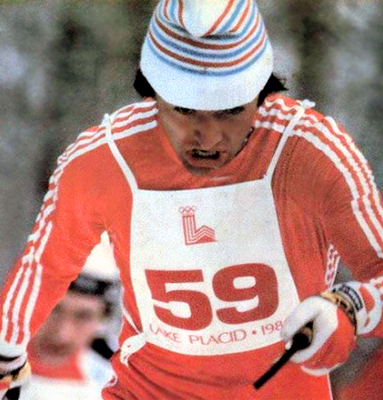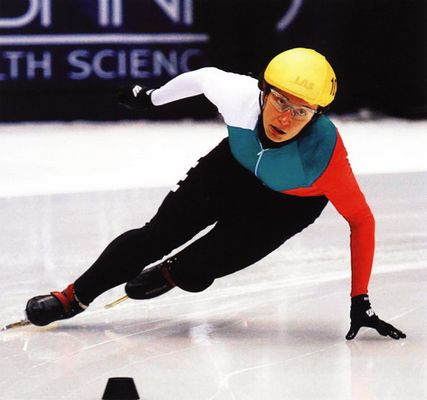Different things can be said about the Bulgarian participation at winter Olympics. For instance – we don’t have such great successes as other nations that seem to be subscribed for medals. On the other hand, our achievements are not that small, given the size of the country and its financial status – and we always outline this. At the same time this is something essential for the nations and their self-esteem. When you say ‘a sports nation’ this means that the state where this nation resides does its best to establish the necessary conditions for its citizens to do sports. That is to do sports, not to become Olympic champs. Champions were born that way, they say. However, first you need talent for that, then you need to be lucky enough and be spotted by the respective talent seeker and then that talent has to be bred up under the existence of the above mentioned conditions. One also needs to have the will to walk the whole path and the path is difficult with no success guaranteed at the end of it. Chance and luck have to be on your side from time to time, though they tend to be by the side of the best. And the best know the price of their success.
The Olympic principle says that participation is that metters, not the victory. In fact Pierre de Coubertin said something a bit different: the important thing is not triumph but the struggle; the essential thing in life is not to have conquered but to have fought. If it was only participation that mattered it would mean that one could just take a  walk to the Olympics, seeing it almost as a resort visit. When we talk about the Bulgarian success we can claim that the fight there was real. Following the Olympic principle this country has participated and done its best ever since 1936, when the Garmisch-Partenkirchenstart was given. Whenever we talk about success, we think of gold medals first. However, true sport fans realize that any position won in between the first 6, 10 and even 20 is some disciplines is success. For instance, back in 1964 and in Innsbruck the 3x5 ski running relay, women Bulgarian team of Rosa Dimova, Nadejda Vasileva and Krastana Stoeva was ranked 5th. Then in 1980 Petar Popangelov finished 6th at the Lake Placid slalom in 1980. The medal back then was surprisingly brought home by ski runner Ivan Lebanov, who took the bronze in the 30 km discipline. That was the first medal ever for Bulgaria, won at winter Olympics. By the way, Popangelov repeated his success at the next games in Sarajevo and no one could say that he was just walking there – he was fighting.
walk to the Olympics, seeing it almost as a resort visit. When we talk about the Bulgarian success we can claim that the fight there was real. Following the Olympic principle this country has participated and done its best ever since 1936, when the Garmisch-Partenkirchenstart was given. Whenever we talk about success, we think of gold medals first. However, true sport fans realize that any position won in between the first 6, 10 and even 20 is some disciplines is success. For instance, back in 1964 and in Innsbruck the 3x5 ski running relay, women Bulgarian team of Rosa Dimova, Nadejda Vasileva and Krastana Stoeva was ranked 5th. Then in 1980 Petar Popangelov finished 6th at the Lake Placid slalom in 1980. The medal back then was surprisingly brought home by ski runner Ivan Lebanov, who took the bronze in the 30 km discipline. That was the first medal ever for Bulgaria, won at winter Olympics. By the way, Popangelov repeated his success at the next games in Sarajevo and no one could say that he was just walking there – he was fighting.
In Albertville 1992 the Bulgarian participation was stood out mostly through biathlon. Nadezhda Aleksieva was one step away from the medal, but remained 4th at a distance of 7.5 km. She remained 4th as well in the 3x7.5 km relay alongside Iva Shkodreva and Silvana Blagoeva.
 Then there was the joy! Bulgaria’s triumph came at the 1998 Nagano Winter Olympics – biathlete Ekaterina Dafovska won the first gold medal for Bulgaria ever at the 15 km distance. Pavlina Filipova was hanging by the thread and missed the bronze by 0.2 points only. This country’s performance in Salt Lake City 2002 turned outstanding with more than one medal won. Evgenia Radanova won the bronze at 500 m short track speed skating and bronze at the 1,500 m, while biathlete Irina Nikulchina won the bronze medal at 10 km chase. The female relay formation consisting of Pavlina Filipova, Irina Nikulchina, Iva Karagiozova and Ekaterina Dafovska remained 4th and the Albena Denkova & Maxim Stavyski figure skaters were ranked 7th. The duo was about to become Olympic champs, but a technical detail prevented them from doing so… Anything can happen during Olympics. Evgenia Radanova won the silver at 500 m short track in Torino 2006 and has been considered the most successful Bulgarian athlete in winter sports ever since, which in no way devalues the achievements of all the athletes mentioned so far.
Then there was the joy! Bulgaria’s triumph came at the 1998 Nagano Winter Olympics – biathlete Ekaterina Dafovska won the first gold medal for Bulgaria ever at the 15 km distance. Pavlina Filipova was hanging by the thread and missed the bronze by 0.2 points only. This country’s performance in Salt Lake City 2002 turned outstanding with more than one medal won. Evgenia Radanova won the bronze at 500 m short track speed skating and bronze at the 1,500 m, while biathlete Irina Nikulchina won the bronze medal at 10 km chase. The female relay formation consisting of Pavlina Filipova, Irina Nikulchina, Iva Karagiozova and Ekaterina Dafovska remained 4th and the Albena Denkova & Maxim Stavyski figure skaters were ranked 7th. The duo was about to become Olympic champs, but a technical detail prevented them from doing so… Anything can happen during Olympics. Evgenia Radanova won the silver at 500 m short track in Torino 2006 and has been considered the most successful Bulgarian athlete in winter sports ever since, which in no way devalues the achievements of all the athletes mentioned so far.
English version: Zhivko Stanchev
The 42nd edition of the Wizz Air Sofia Marathon 2025, Bulgaria’s largest athletics event, will take place on 11–12 October, with the capital’s streets set to host thousands of runners. Organisers have reported a record level of interest this year,..
Nearly 20,000 football fans are expected to attend the World Cup qualifier between Bulgaria and Turkiye. The match will be played on Saturday, October 11, at 9.45 pm at the Vasil Levski National Stadium in Sofia. The game will mark the debut of..
Basketball player Aleksandar Vezenkov was named the best player outside the National Basketball Association (NBA) for the second consecutive year, according to a survey conducted among NBA general managers. The Olympiacos star received 44% of..
Real Madrid defeated Hapoel Tel Aviv 75:74 (22:18, 17:18, 21:22, 15:16) in a Round 13 EuroLeague basketball match. The game was played at Arena..

+359 2 9336 661
